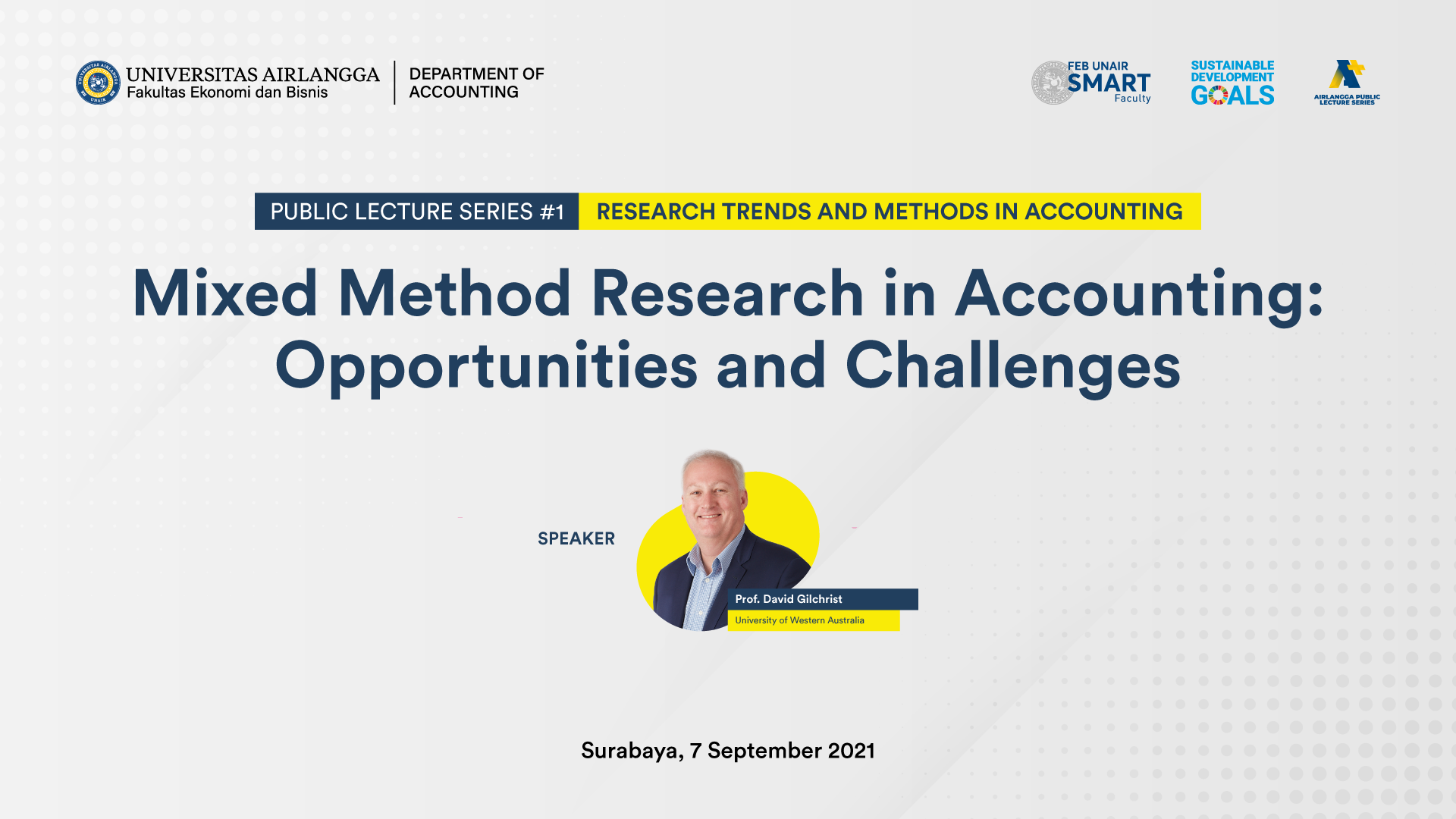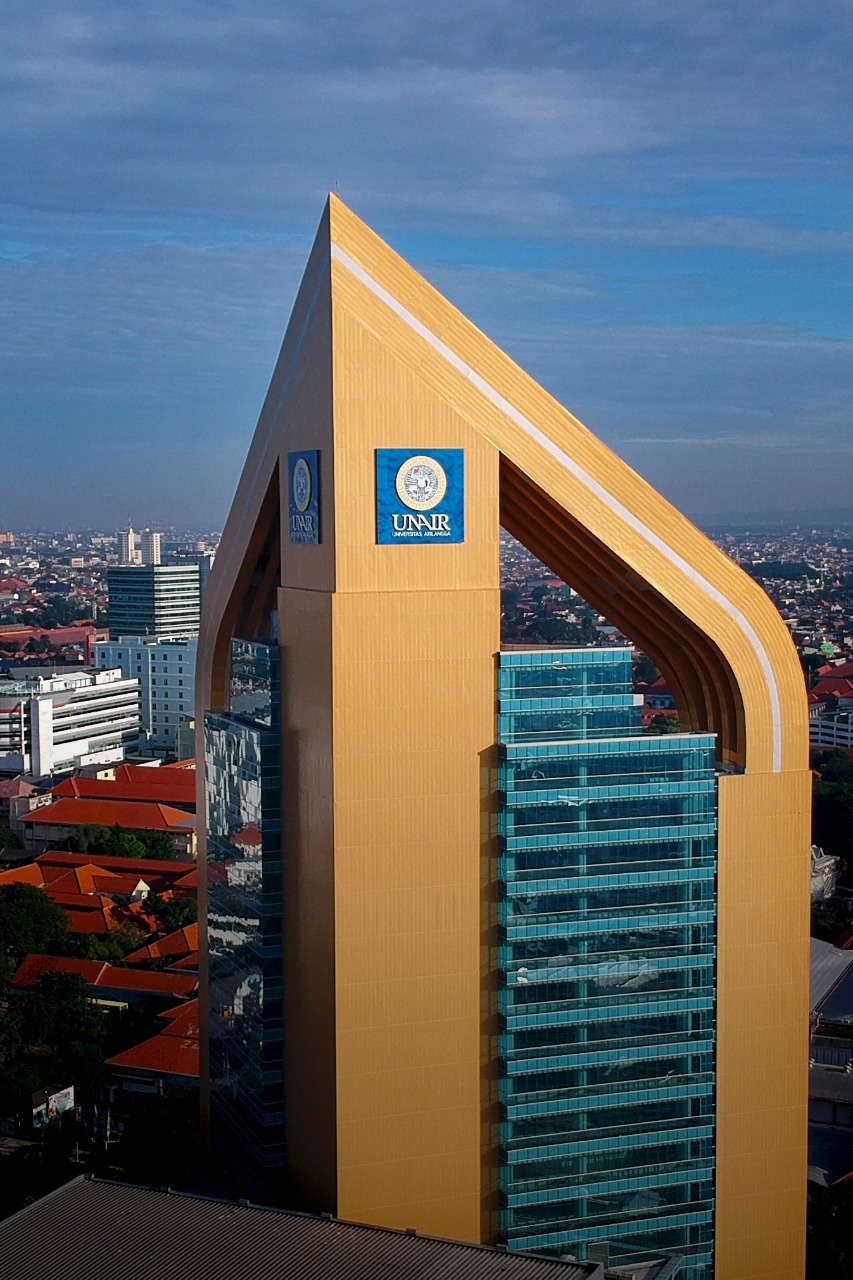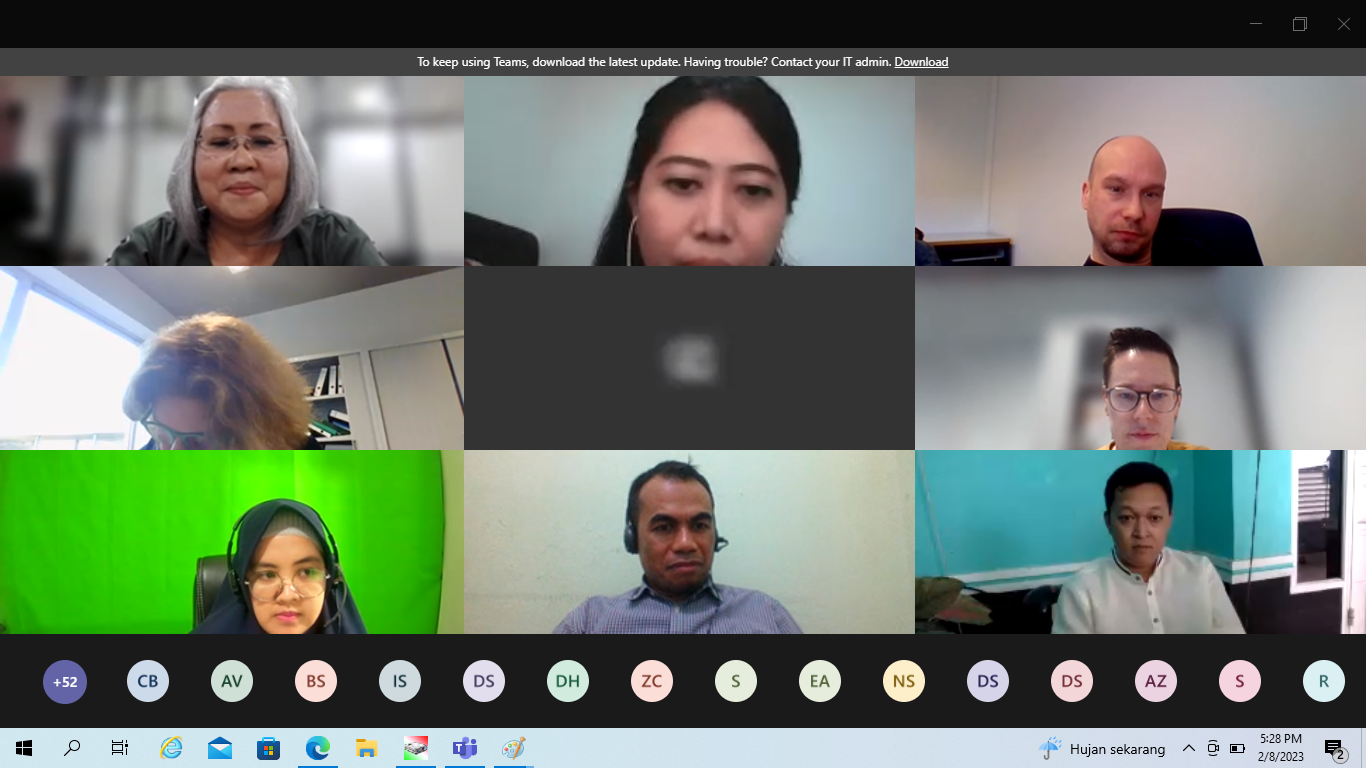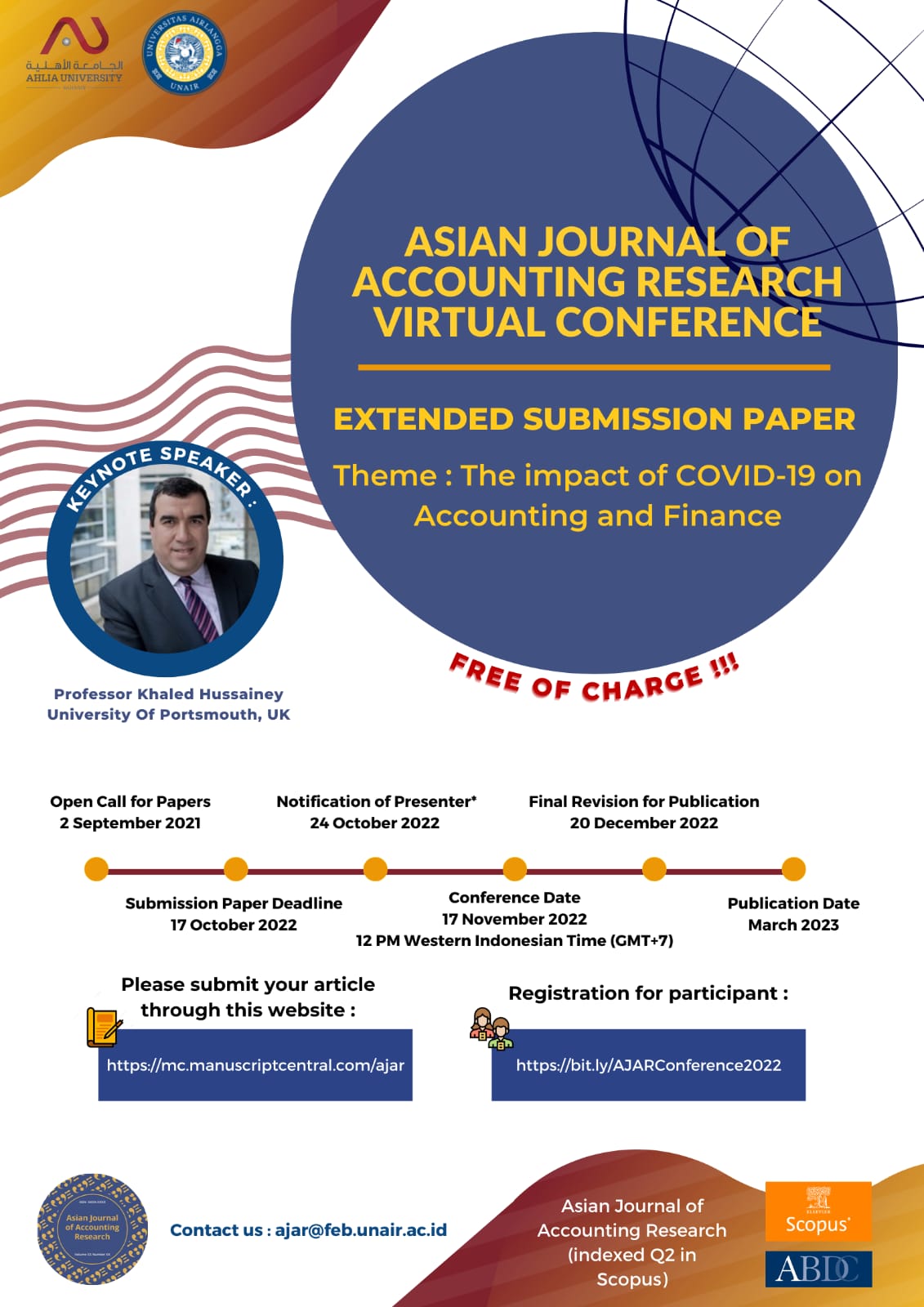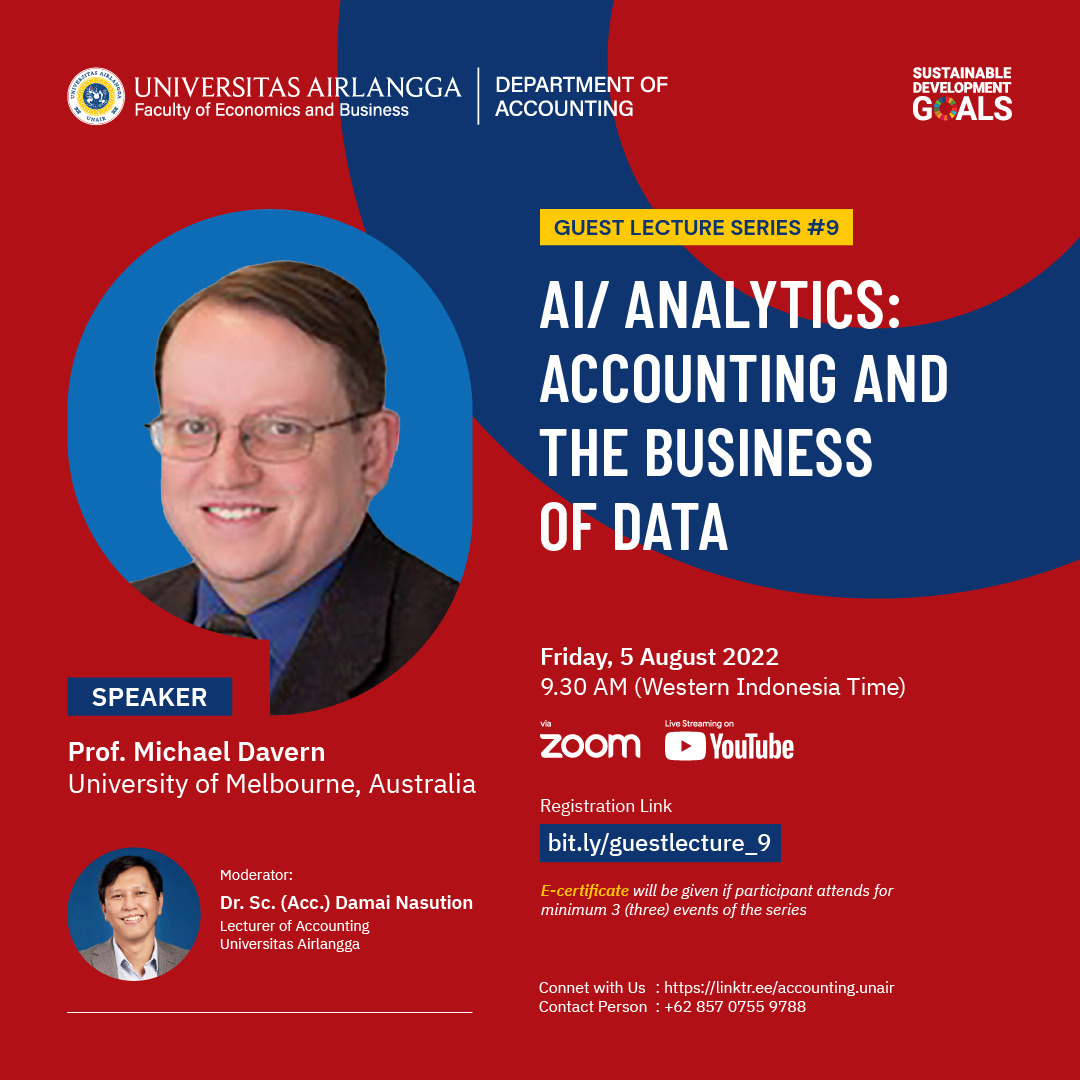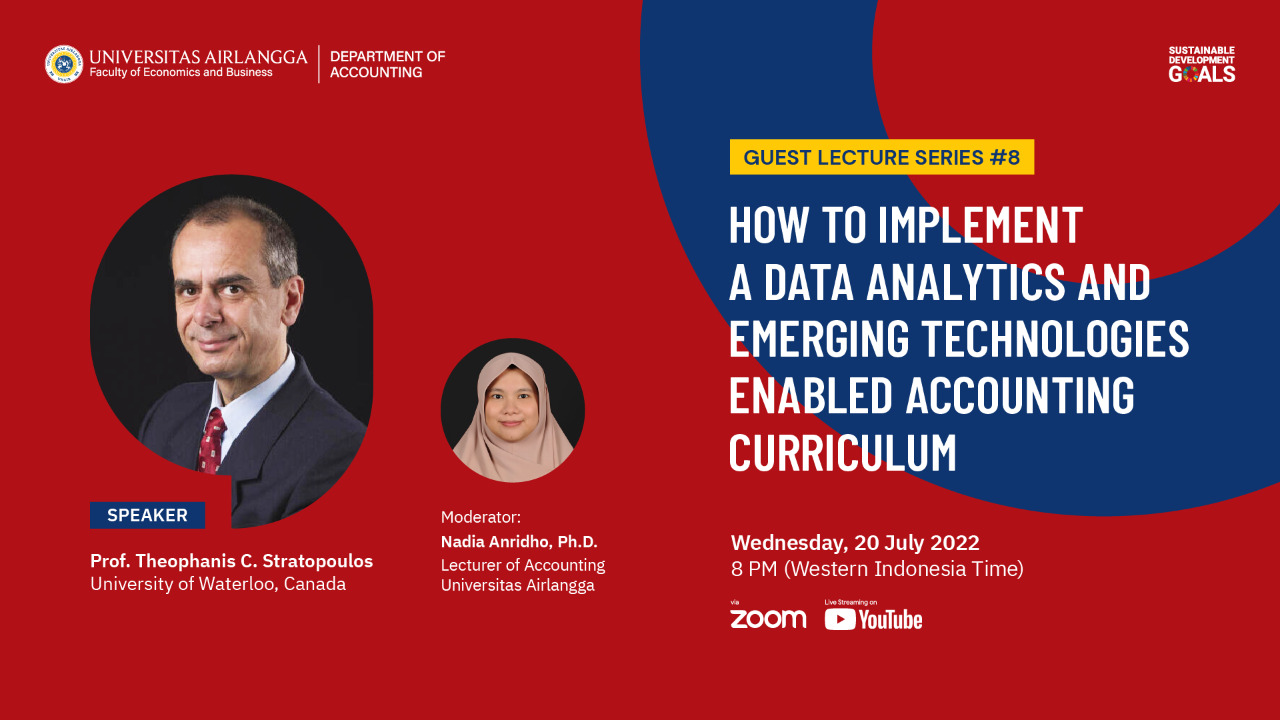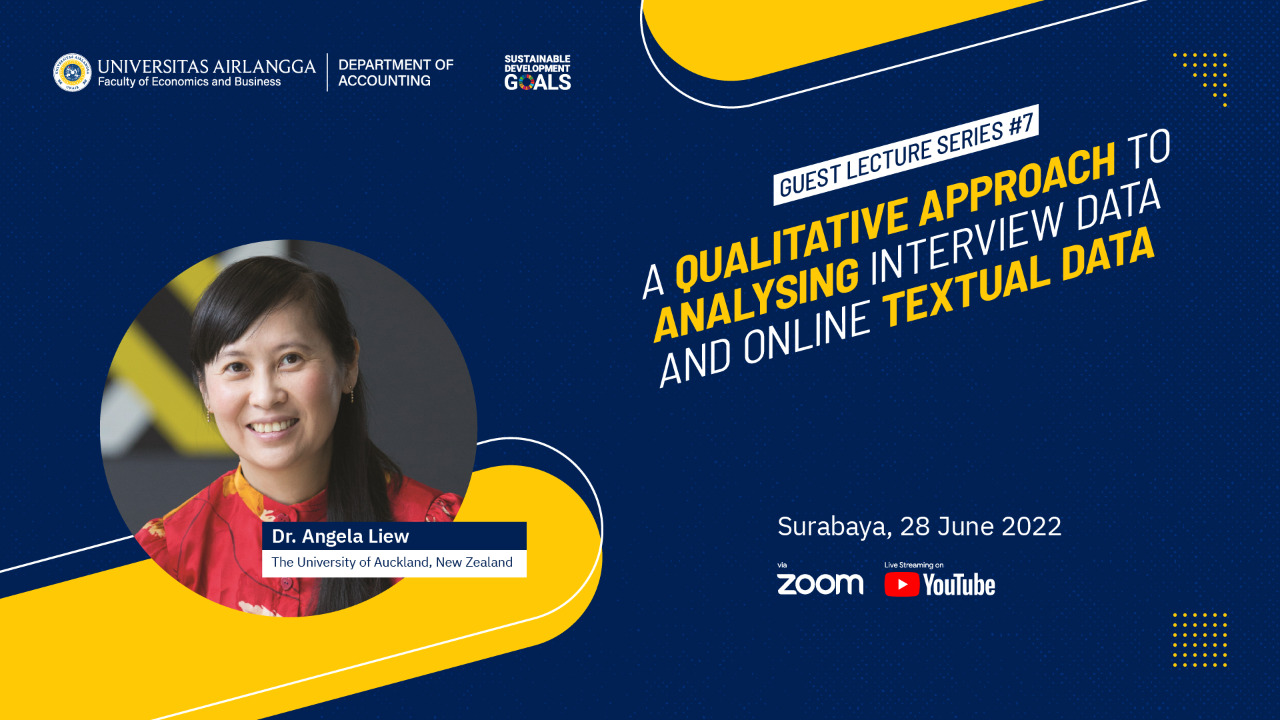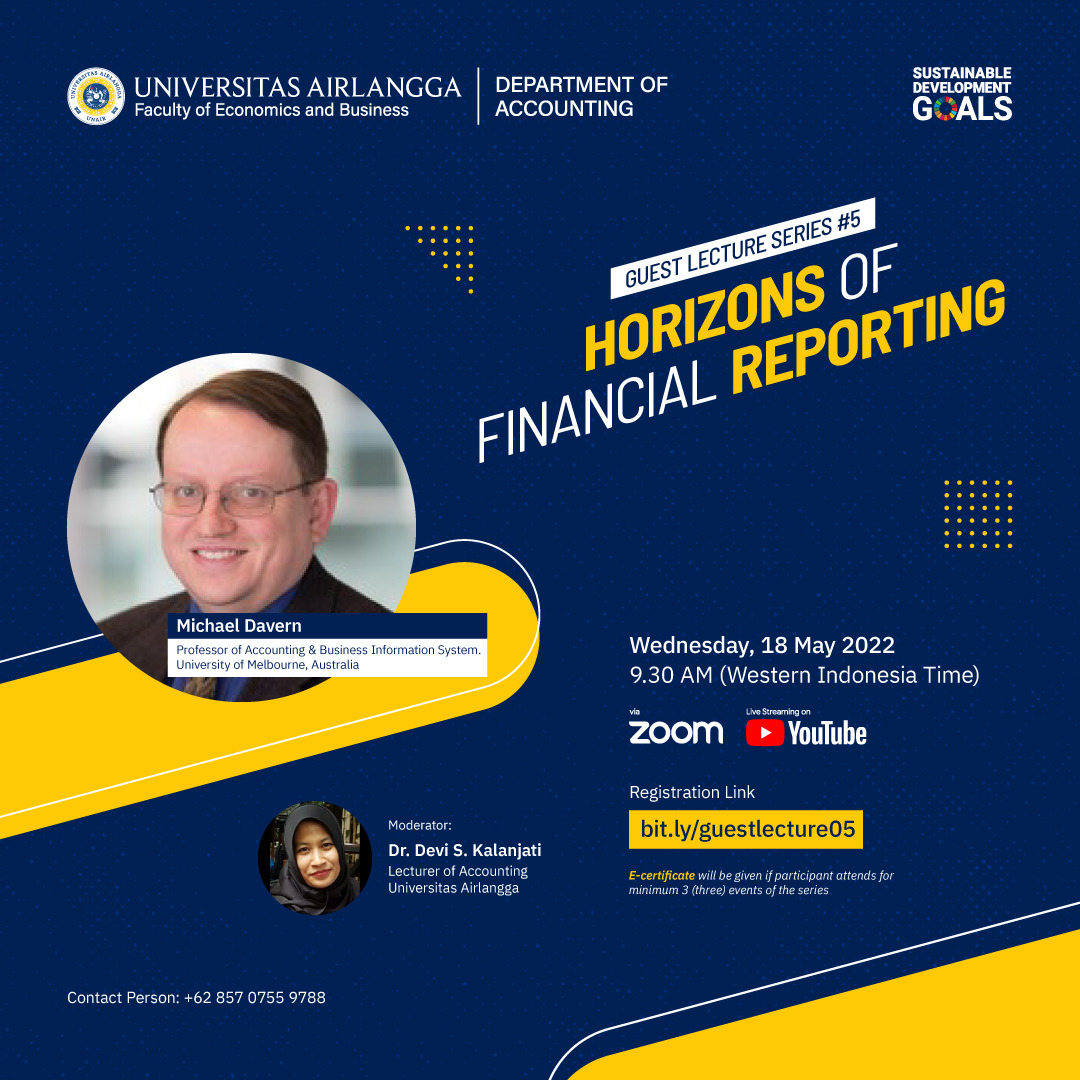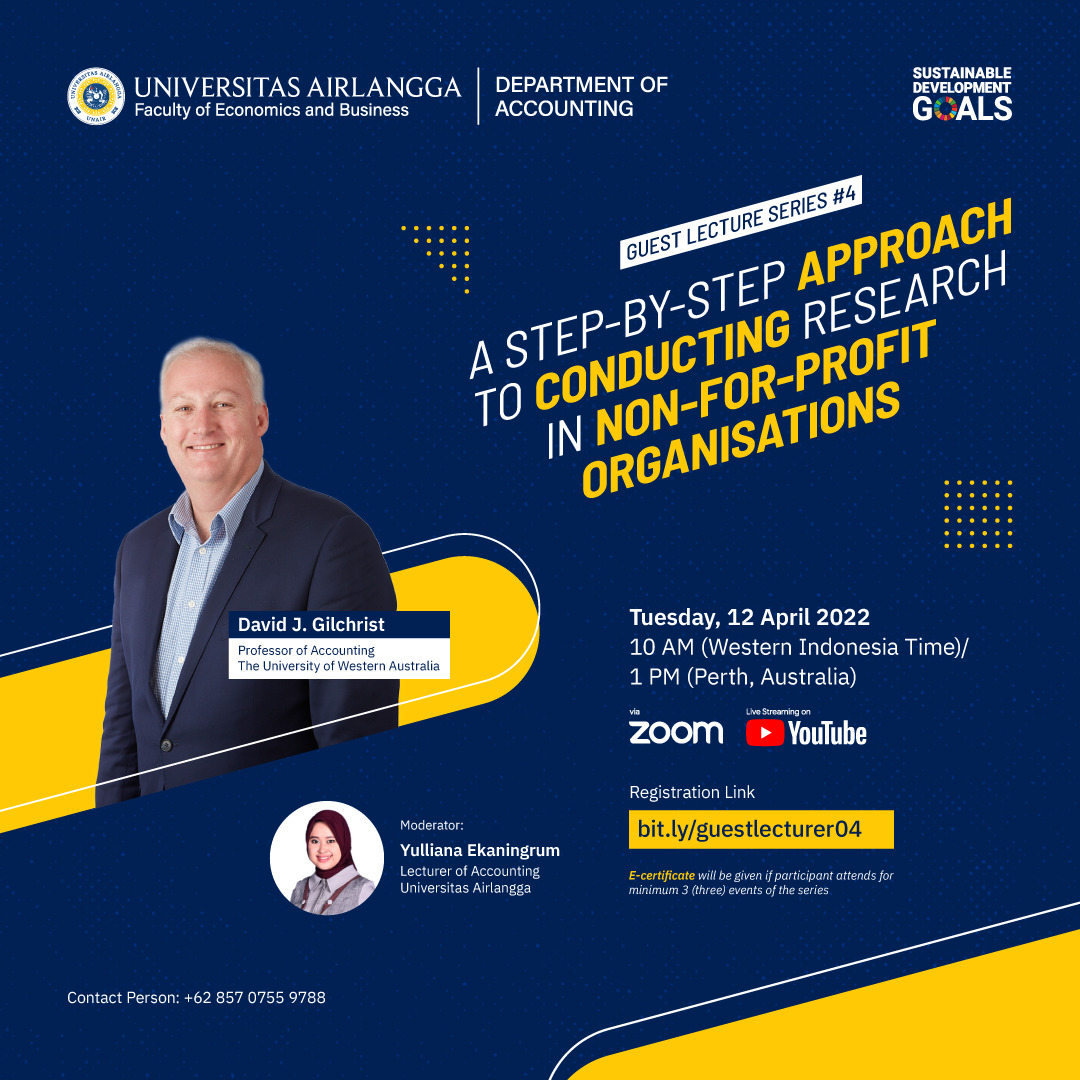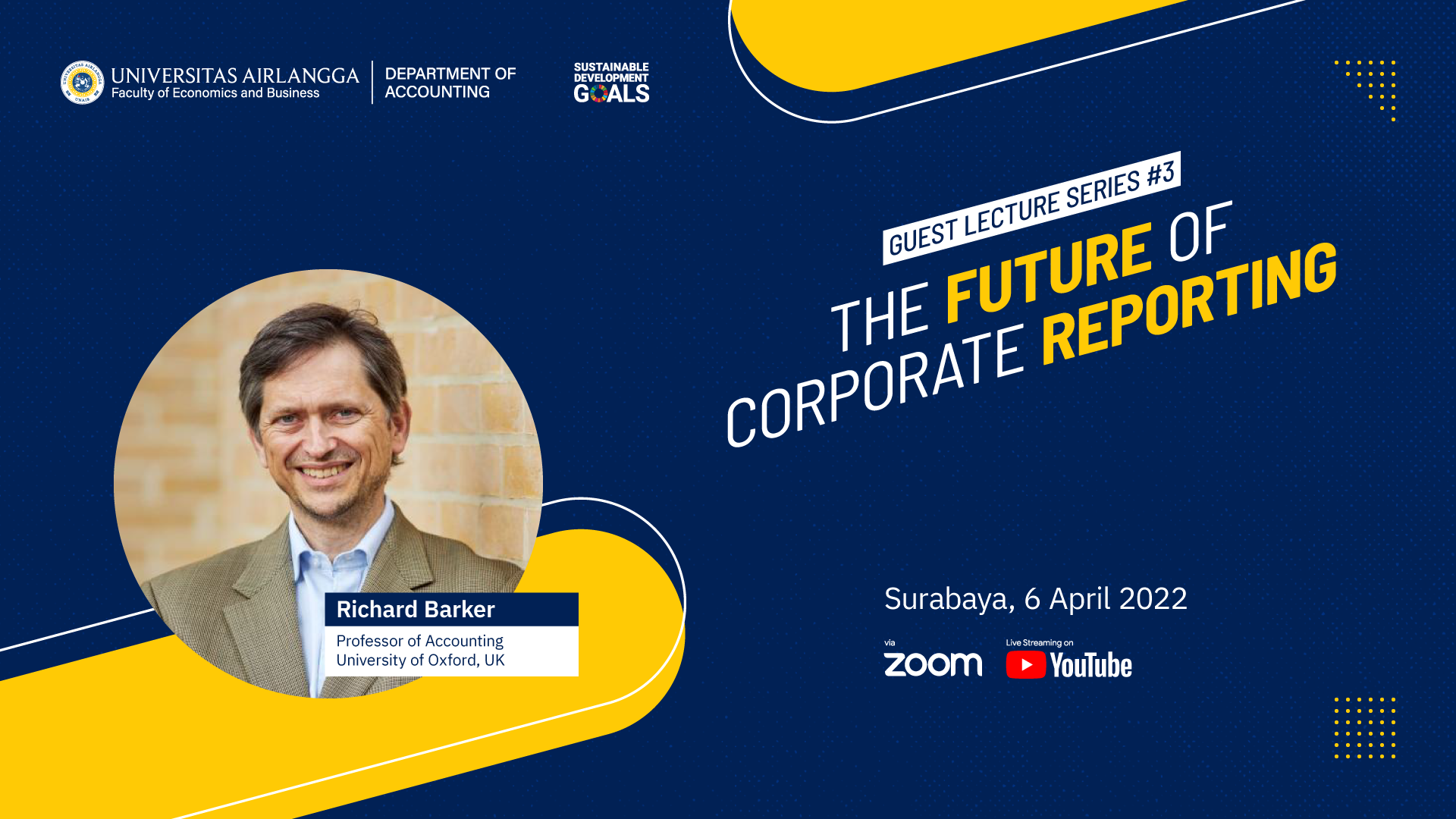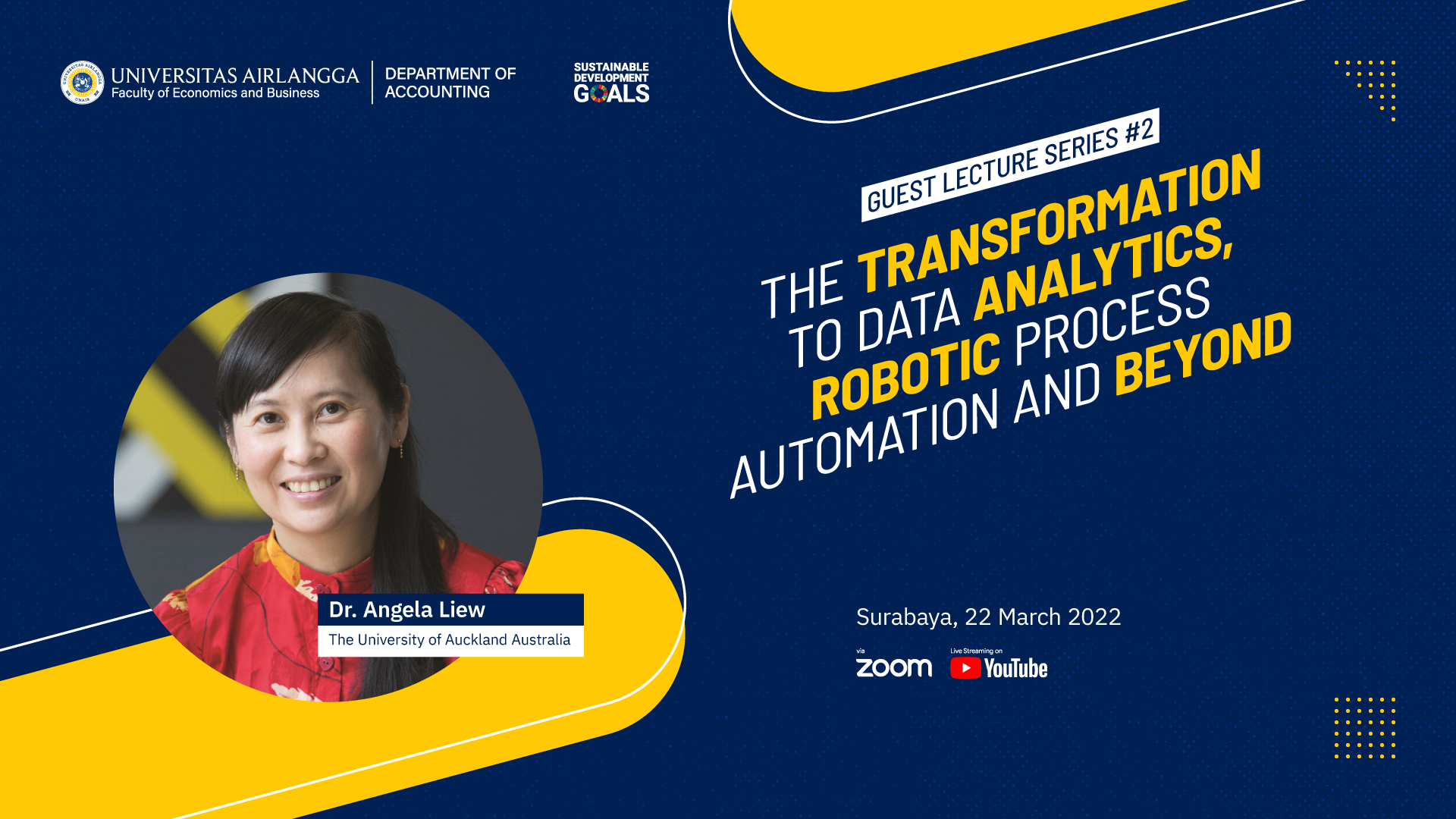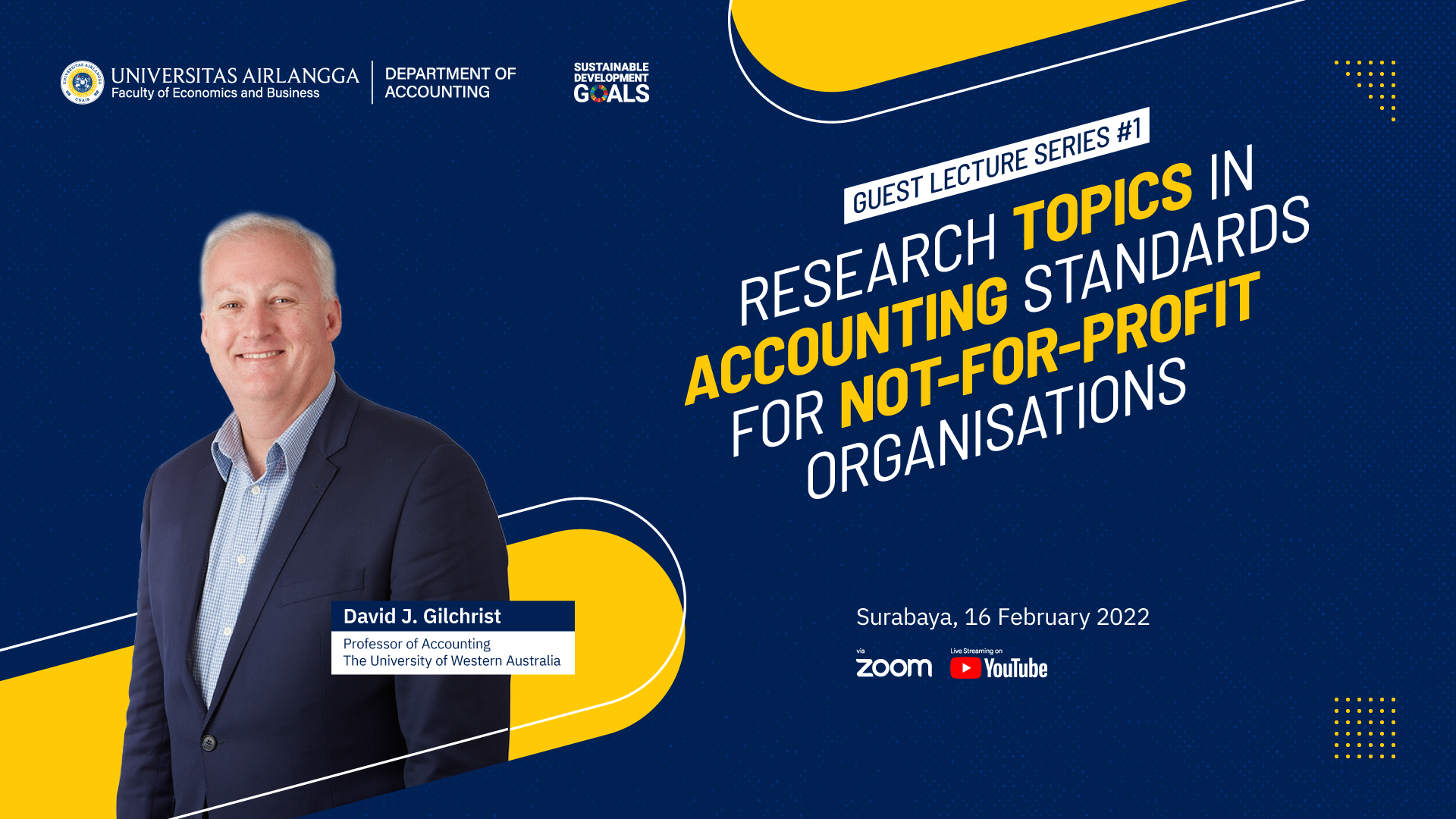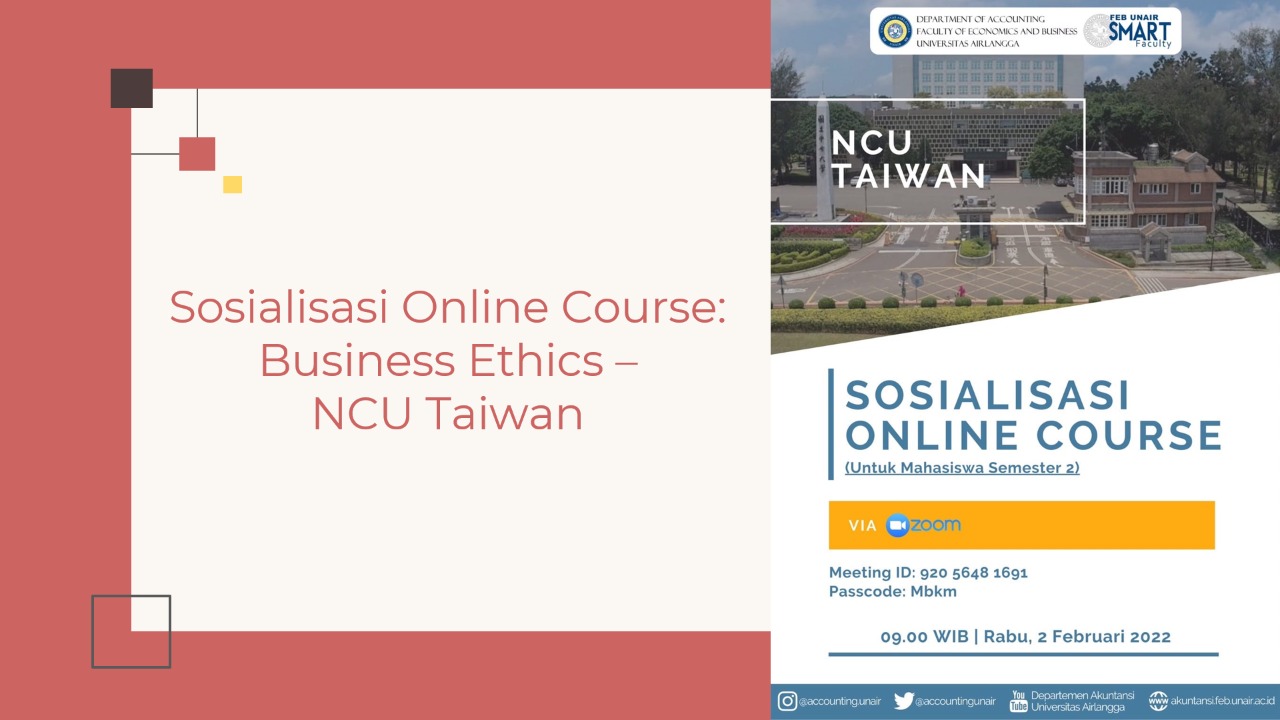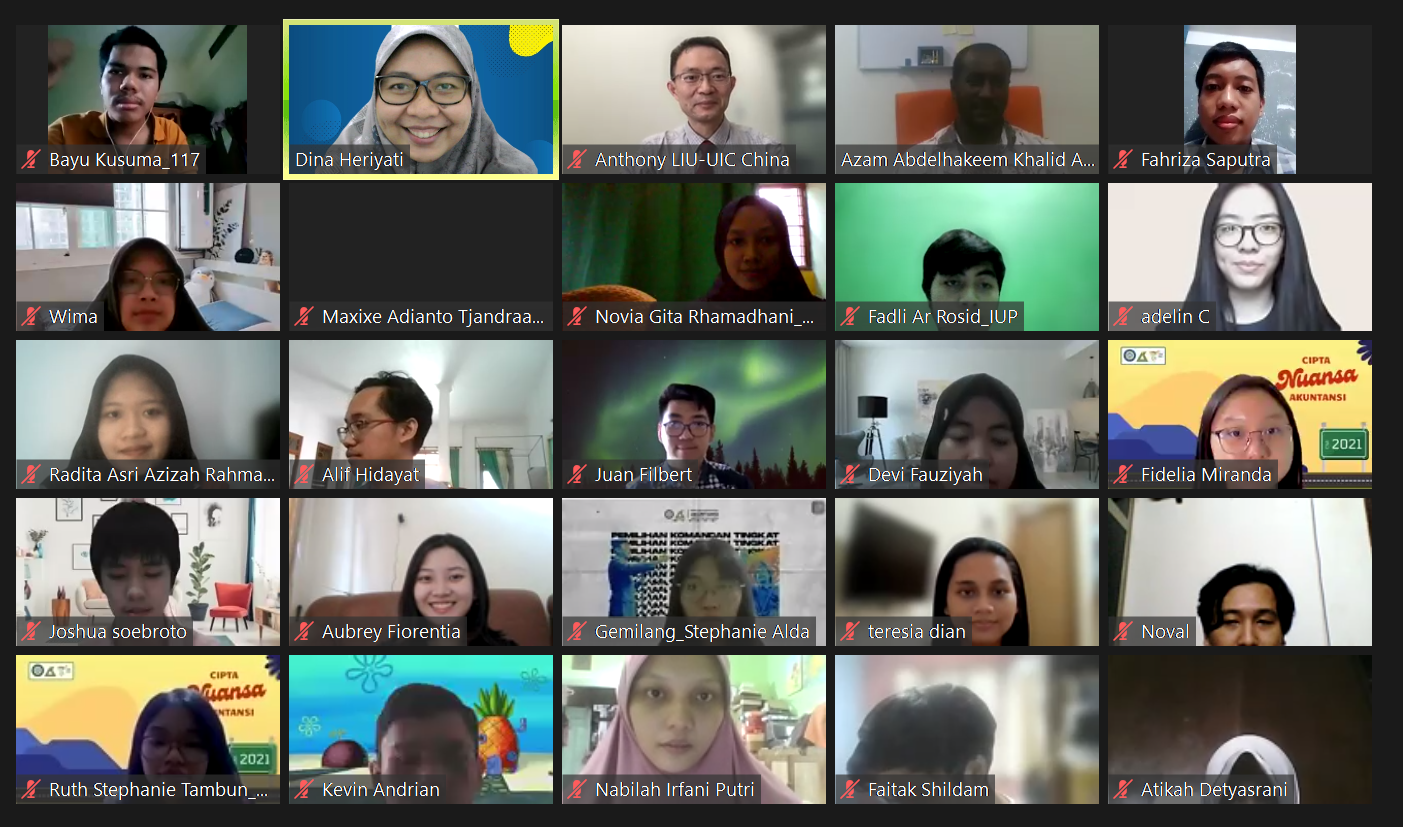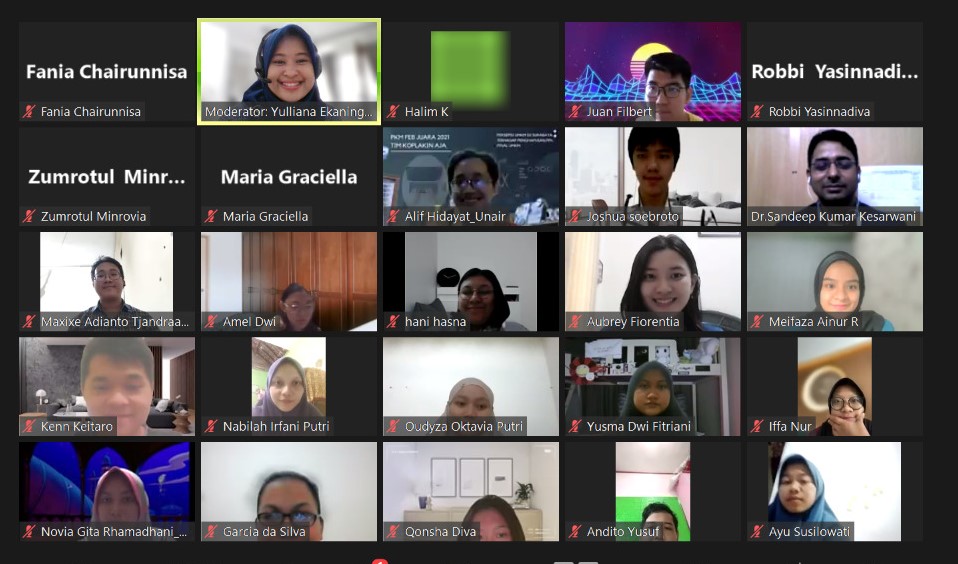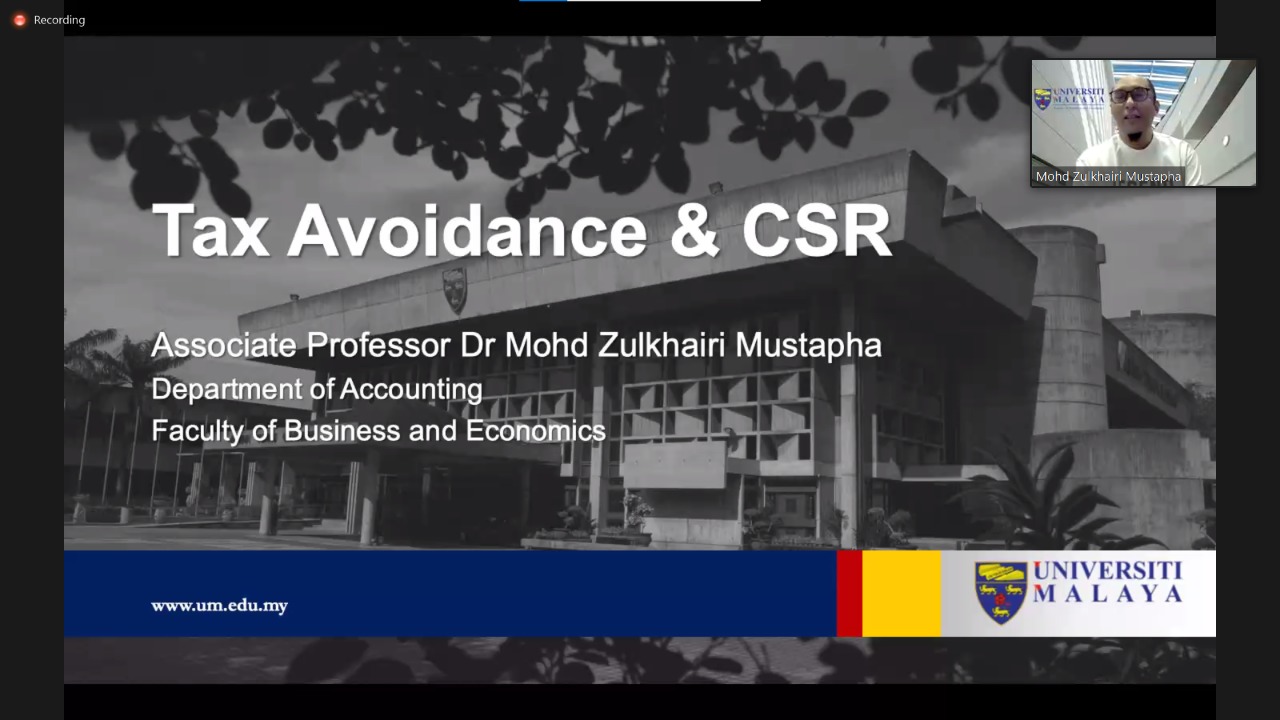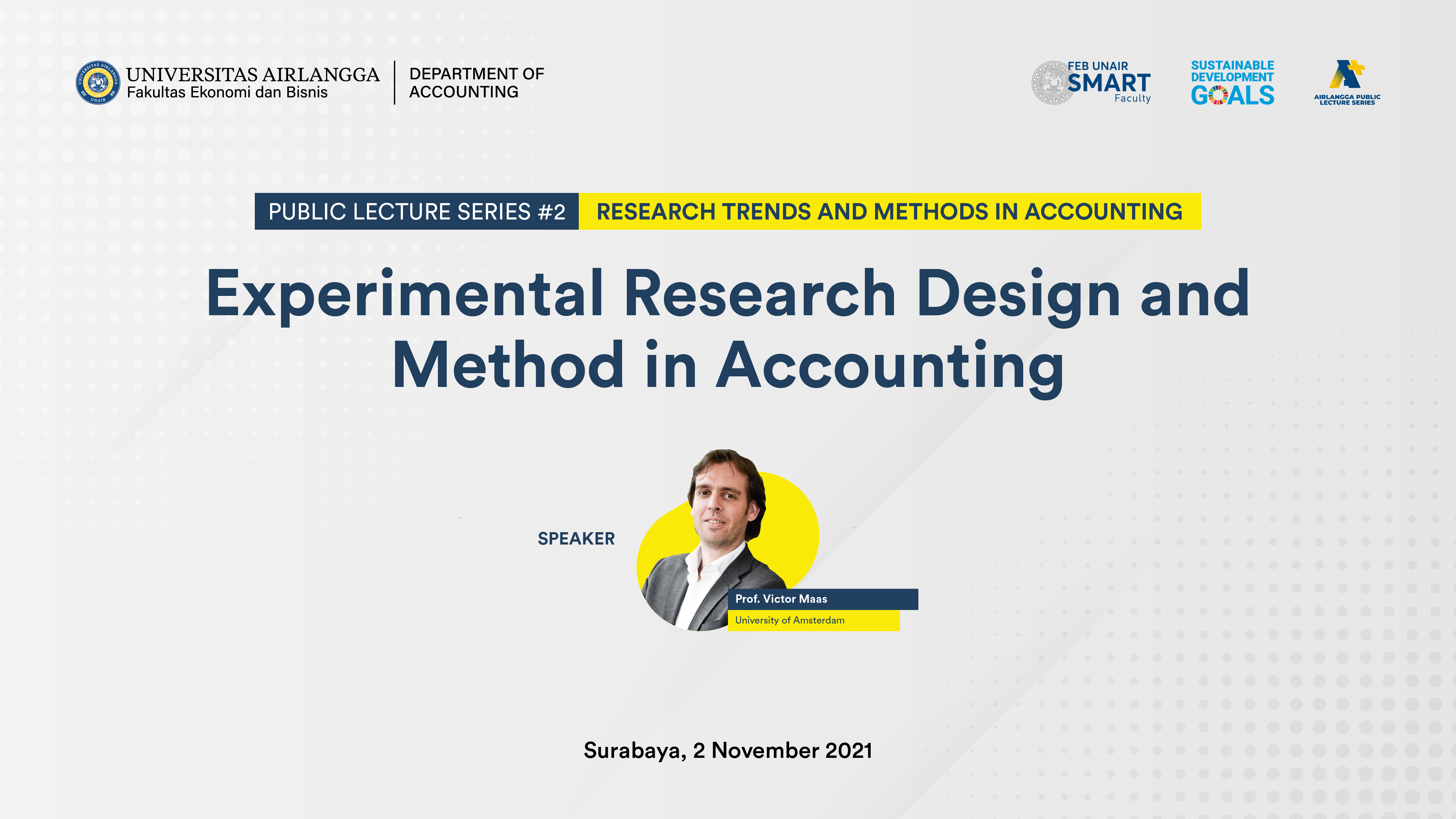Professor of Accounting in The University of Western Australia, David Gilchrist came back and delivered an amazing lecture as usual. This time, he was invited to the first series of the Public Lecture on 7th of September 2021, where he shared his knowledge and experiences regarding mixed method research in accounting. He started the lecture by explaining the context of the lecture and mentioned that there is a century of dispute and until recently, most researchers still choose to use quantitative methods. He reminded that everytime a researcher decides to use a method, it is important to seek who else is doing this work, where they are doing it and such. Another important contextual issue is the incompatibility thesis, which he explained most researchers see themselves only as qualitative or only as quantitative researchers and less likely to think to actually combine both because it might be incompatible. Two research cultures are also very significant and have differences.
Although having significant differences, David mentioned that both methods actually possess some similarities with each other. Both methods in general address research questions and use empirical evidence to illuminate their research questions. Quantitative and qualitative methods also have 3 exact similarities, both describe the data and understand what the data is saying, construct explanatory arguments, explain what the data is about and speculate on phenomena so that researchers are able to extend their research by speculations and thereby creating further research topics.
David also explains the key attributes that are mainly being used in the mixed method research, which includes observations, observer, enquiry, determinations, nature of evidence and representation. He also mentioned that these key attributes are very important because they really build on the powerful opportunity for combinations of different attributes that allow for a much broader and much deeper story to be told out of research. For observation, David explained that quantitative methods usually see the researcher as a separate individual from the research, while the qualitative methods see that the researcher is a part of the process. Enquiry is also an important issue because most researchers argue that in the quantitative method, enquiry is entirely objective and qualitative is more subjective. Determination also differs between qualitative and quantitative but in general, David reminded that both in accounting are sociological research and not a hard science so there will always be even in the process. The nature of evidence is of course empirical, and there can be multiple empirical outcomes, but in terms of that multiple empirical outcomes, David said that there is an opportunity in the process to widen our view of what the projection of that outcomes might mean for the answers to the research question and also for what further research questions might be asked. Lastly, the representation attribute is different for the quantitative where the researcher mostly has impersonal passive voice but when it comes to qualitative where the researcher is seen as a part of the research, they mostly have empathic voice/descriptive.
Moving to explain about the mixed research method, David described a few things regarding the mixed method research. First of all, of course both methods are important and useful even when they have some differences, and the goal of mixed methods is not to replace but to draw on the value of both methods, to use the strength from both elements. The second goal is that mixed methods are to bridge the schism between qualitative and quantitative methods. David also mentioned that mixed method research is a third research paradigm, it is not just simply taking the two existing paradigms and applying them but we must bring into that research process not just the methods themselves. We can also mix and match the attributes in order to answer the research questions. He quoted words from Johnson & Onwuegbuzie (2004), “...the class of research where the researcher mixes or combines quantitative and qualitative research techniques, methods, approaches, concepts or language into a single study.” to define mixed method research, so simply saying, it is a process of bringing and using everything into a single study by virtue of the value of the attributes that has been identified before in order to get a better outcome. He also elaborated the opportunities in mixed methods, which are first, it legitimises the use of multiple methods, it is expansive and creative, inclusive and pluralistic, complementary and results in complementary strengths and non overlapping weaknesses.
In accounting research, he explained how he mostly uses bookending where he combines qualitative and quantitative methods, there are qualitative research pieces then a survey piece and so on. He also explained how he uses mixed analysis to analyze the data, where it includes quantitative and qualitative analysis. He mentioned that we can either adopt an across stage research methodology or a within stage research methodology. Across stage methodology is exemplified by the bookending technique so we can apply qualitative or quantitative depending on what’s going on. On the other hand, within stage methodology is within that specific component of data collection that we might combine the two methods. He also mentioned some research topics that are general and might spark interests for the accounting or finance researchers, such as Auditing Behaviour, User Decision Usefulness and User Education/Financial Literacy Growth. Before closing the lecture, he reminded that the researcher must understand the application of each method in order to apply the mixed method on their research. (BLQ)


